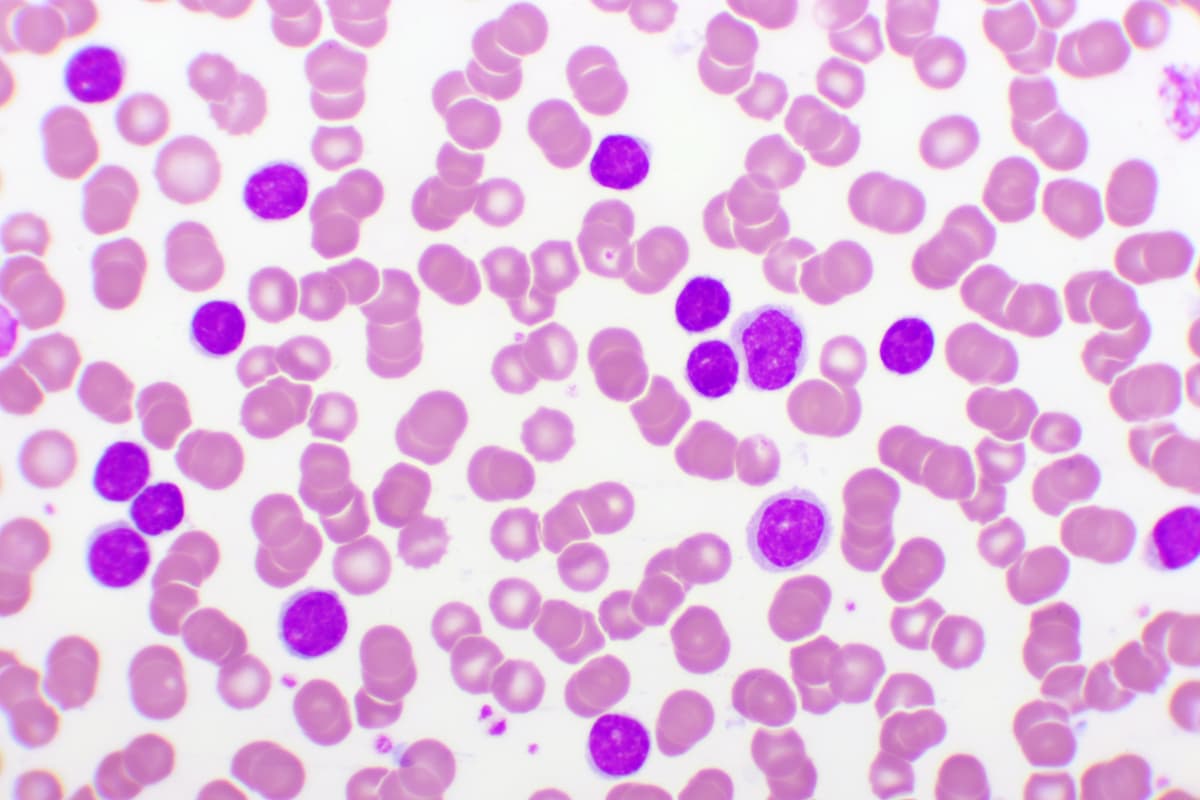Acalabrutinib Tablet Formulation Receives EU Approval in CLL
Adult patients with chronic lymphocytic leukemia in the European Union can now receive treatment with acalabrutinib tablets.
The European Commission has approved a tablet formulation of acalabrutinib (Calquence) for the treatment of adult patients with chronic lymphocytic leukemia (CLL), according to a press release from AstraZeneca.1
"Today’s approval offers physicians and patients in the EU more flexibility to determine the right treatment plan and enables more patients to potentially benefit from [acalabrutinib]," according to the manufacturers of acalabrutinib.

The European Union approval of acalabrutinib follows a positive recommendation from the Committee for Medicinal Products for Human Use and supporting data from the ELEVATE-PLUS trials. In these trials, acalabrutinib capsule and tablet formulations demonstrated bioequivalence, signaling comparable efficacy and safety when administered at the same dosing level and schedule. Investigators determined that there were no new safety signals and that any adverse effects on the studies were mild.
“Many patients with [CLL] face multiple medical conditions that require daily treatment, including the use of acid-reducing agents for conditions such as gastro-oesophageal reflux,” Paolo Ghia, MD, director of the Strategic Research Program on CLL at Università Vita-Salute San Raffaele in Milan, said in the press release. “The tablet formulation allows for co-administration with these drugs, allowing more patients with [CLL] to assume [acalabrutinib].”
ELEVATE-PLUS includes 3 open-label, single-dose, cross-over phase 1 studies totaling 116 healthy individuals. Investigators established the bioequivalence between 100 mg acalabrutinib tablets and 100 mg capsules, evaluated the proton pump inhibitor (PPI) effect of acalabrutinib tablets in the presence or absence of PPI rabeprazole (Aciphex), and the effect of food by assessing tablets administered among those with a high-fat diet vs those who fasted.
Previously, acalabrutinib was approved in Japan for treatment-naïve CLL by the Japanese Ministry of Health, Labor, and Welfare in December 2022.2 The approval was based on findings from the phase 3 ELEVATE-TN trial (NCT0247568), in which acalabrutinib with or without obinutuzumab (Gazyva) improved progression-free survival compared with chlorambucil plus obinutuzumab.
The FDA approved acalabrutinib tablets for all CLL indications and for small lymphocytic leukemia and relapsed/refractory mantle cell lymphoma in August 2022.3 The approval was supported by findings from the ELEVATE-PLUS trials.
“Today’s approval offers physicians and patients in the EU more flexibility to determine the right treatment plan and enables more patients to potentially benefit from [acalabrutinib],” Dave Fredrickson, executive vice president of the Oncology Business Unit at AstraZeneca, concluded.
References
- Calquence tablet formulation approved in the EU for patients with chronic lymphocytic leukaemia. News release. AstraZeneca. February 22, 2023. Accessed February 22, 2023. https://bit.ly/3Z9DUh7
- Calquence approved in Japan for adults with treatment-naïve chronic lymphocytic leukaemia. News release. AstraZeneca. December 28, 2022. Accessed February 22, 2023. bit.ly/3X1OPI7
- Calquence tablet formulation approved in the US across current indications. News Release. AstraZeneca. August 5, 2022. Accessed February 22, 2023. https://bit.ly/3Q3i1eG